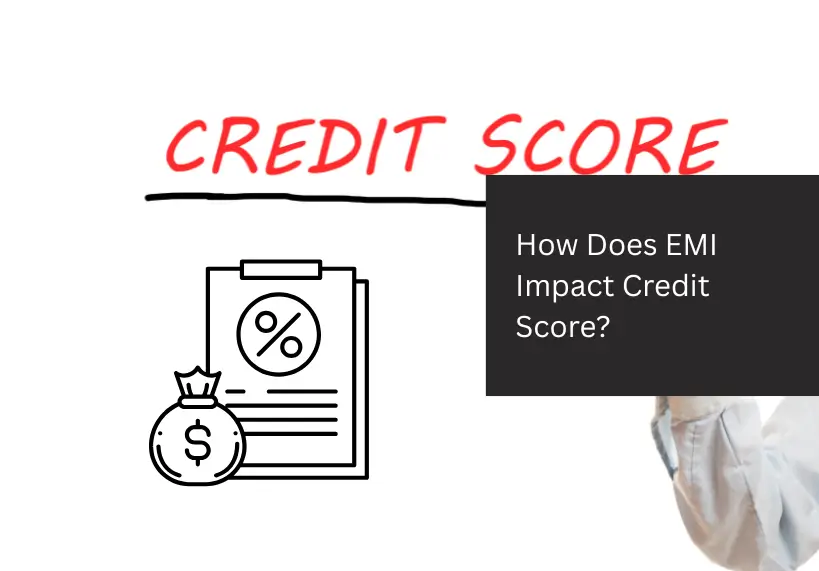
Are you looking to secure loans or credit cards at favourable terms? Then, you must maintain a good credit score. Your credit score is one of the main factors that reflect your creditworthiness and determines whether financial institutions consider you a low-risk borrower.
Suppose you plan to apply for a personal loan to renovate your home. If your credit score is 700 or higher, you’ll likely get your loan approved quickly and might even receive a lower interest rate. So, improving and maintaining your credit score is important.
Here, we have listed a few ways you can increase your credit score.
8 Ways to Improve Your Credit Score for Quick Personal Loan Approval
A high credit score can help you get better and quicker access to financial products. Here are some of the proven ways to improve your credit score:
1. Pay your bills and/or EMIs on time
Making timely repayments of your loans and credit card bills significantly impacts your credit score. Even a single missed or delayed payment can negatively affect it. Setting up auto-payments or payment reminders can help you stay on track and show lenders that you’re responsible with your finances.
2. Maintain a Low Credit Utilisation Ratio
You must try to maintain your credit utilisation below 30%. A lower ratio indicates that you’re not heavily reliant on credit, which improves your score. You can achieve this by reducing your credit card spending or requesting a higher credit limit.
3. Avoid Multiple Loan or Credit Card Applications
Every time you apply for credit, your credit report goes through a hard inquiry, which can negatively affect your score. Moreover, applying for multiple loans within a short period can make you look financially stressed. Apply only when necessary.
4. Monitor Your Credit Report Regularly
You must check your credit report regularly to spot errors or suspicious activity. Disputing incorrect information, like wrong personal details or unauthorised accounts, can help increase your score.
5. Keep Old Credit Accounts Open
Having a long credit history can affect your score. Closing old credit cards can shorten this history and reduce your score. If the cards you hold don’t have high fees, it’s often better to keep them open with occasional use.
6. Opt for Longer Loan Tenures (When Needed)
Choosing a longer loan tenure reduces monthly EMI amounts, making repayments easier to manage and helping you avoid defaults. This can positively affect your payment history. However, balance lower EMIs with the total interest you’ll pay over time.
7. Start Building Credit Early
If you’re new to credit, it’s essential to start early to establish a repayment history. Without any borrowing record, lenders may find it difficult to assess your creditworthiness. You can try opting for a secured credit card or take a small loan for items like mobile phones or appliances on EMIs to begin building your credit profile.
8. Clear Outstanding Debts Systematically
Outstanding debts lower your credit score. Apart from paying bills on time, try to reduce your overall debt by making regular repayments, prepayments, or even foreclosing loans when possible. Reducing your debt burden improves both your credit score and overall financial health.
Common Mistakes to Avoid in Managing Your Credit Score
Here are some common mistakes that could harm your credit score:
1. Missing Payments
Always make payments on time. You can create automatic payments and reminders, and ensure your account has enough funds to cover them.
2. Paying Only the Minimum on Credit Cards
If you only pay the minimum amount, it leads to higher interest costs and growing debt. Try to pay off your full balance whenever possible.
3. Applying for Multiple Credits Simultaneously
Applying for multiple credit cards in a short span can decrease your credit score and make you appear financially unstable.
4. Co-Signing Loans Without Caution
Co-signing a loan makes you equally responsible for repayments. If for any reason, the primary borrower misses a payment, it can reduce your credit score, too. Only co-sign if you’re confident in their repayment ability.
5. Not Regularly Checking Your Credit Score and Report
Regularly checking your credit score can help in quickly catching any errors or signs of identity theft, giving you a chance to fix them before they affect your score.
How long does it take to increase your Credit Score?
Increasing your credit score generally takes anywhere from 4 to 12 months, depending on your current score and financial behaviour. Consistent on-time payments, low credit utilisation, and limiting new credit applications can help you get a personal loan approved faster. However, serious issues like defaults or bankruptcies may take longer to recover from.
Conclusion
A good credit score is built gradually and it requires discipline, patience, and responsible credit behaviour. Paying bills on time, maintaining a healthy credit mix, and regularly reviewing your credit report can help boost your score over time. Whether you’re planning to apply for a personal loan or simply want to maintain strong financial health, a high credit score brings better financial opportunities.
Frequently Asked Questions
What is a good credit score?
A credit score of above 700 is generally marked as good and can improve your chances of approval for loans and credit cards.
How many times can I check my credit score?
You must check your credit score at least once a year or before applying for a major loan or credit product.
Does checking my credit score frequently lower it?
No, checking your own score is marked as a soft inquiry and doesn’t affect your score.
What should I do if there’s an error in my credit report?
If you find an error, you must raise a dispute with the credit bureau that issued the report to have it corrected.
Can I rebuild my credit score after a loan default?
Yes, though it may take time. Focus on repaying outstanding debts, making timely payments, and avoiding new defaults to gradually rebuild your score.








